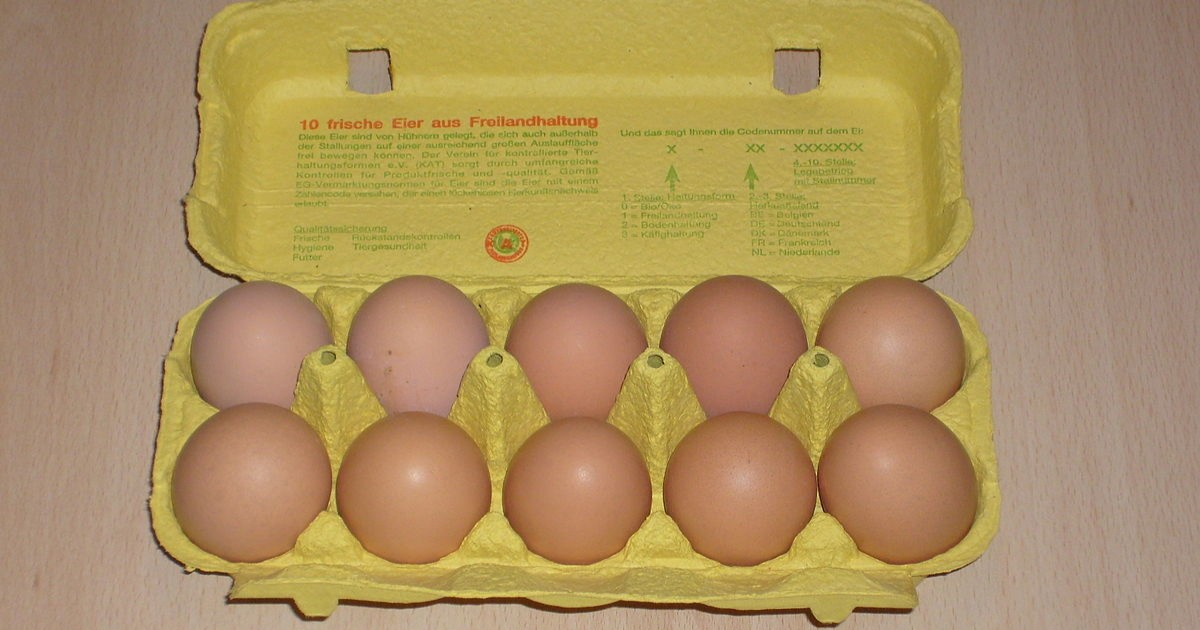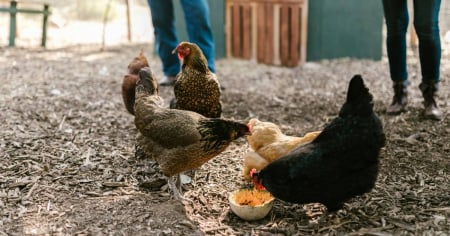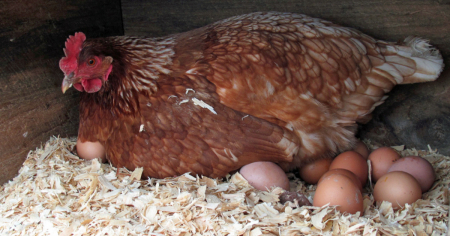
Related videos:
Egg prices in the United States reached a record high of $4.95 per dozen in January—a 15% increase—and they are expected to continue rising.
The Bureau of Labor Statistics reported on Wednesday that this is the average price of a dozen Grade A eggs nationwide, but clarified that it can cost $10 or more in some places. Exclusive varieties, such as organic or cage-free eggs, are even more expensive.
In many supermarkets, people have been seen hoarding all the items they can. Many stores no longer have stock available, and others have had to limit sales.
Walmart, for example, reduced the purchase limit of 60-count cartons to two per transaction "to ensure that more customers can access eggs," said a spokesperson for the retailer to CBS News.
The worst part is that a decrease in prices is not expected, but rather the opposite. The Department of Agriculture predicted that egg prices are likely to rise by 20% this year.
The only consolation is that from now on, numbers are expected to continue rising, but at a slower pace. The increase in January "is likely to be somewhat exceptional," said EY's chief economist, Gregory Daco.
The cause of the phenomenon is the ongoing outbreak of avian influenza that began in 2022, which led to the culling of millions of birds across the country.
According to the Department of Agriculture, more than 23 million animals were culled in January alone, and over 18 million in December. Turkeys and broiler chickens were killed, but mainly laying hens. When the virus is detected on a farm, the entire flock must be eliminated to limit the spread of the virus.
In 2024, nearly 40 million laying hens were lost due to death or required culling because of avian influenza.
Sharon Linsenbardt, owner of Barn Buddies Rescue and Sanctuary, a nonprofit dedicated to rescuing abused or abandoned farm animals in Las Vegas, explained that the large number of dead chickens cannot be quickly replaced, but the demand remains steady. As the supply decreases, prices rise.
Avian flu continues to impact farms and animals. According to David Anderson, a professor of agricultural economics at Texas A&M University, it is likely that egg supplies will remain limited as long as outbreaks persist.
The expert has also noted that Americans now prefer diets that are higher in protein, which could worsen the crisis.
"We have this nutritional trend, and as people incorporate more protein into their diet, it increases the overall demand for eggs and sets a higher baseline for that demand," he said.
Experts believe that in order for prices to decrease, the country must control avian flu and replace old and sick chickens, which will take several months.
Frequently Asked Questions about the Egg Price Crisis in the U.S.
Why have egg prices risen so much in the U.S.?
The prices of eggs have risen due to an outbreak of avian flu that has led to the culling of millions of birds in the country, reducing supply. Additionally, restrictions on the breeding of hens and high demand for protein-rich diets have worsened the situation. Inflation and rising production costs have also contributed to the price increase.
How are supermarkets dealing with the egg shortage?
Many supermarkets have imposed limits on egg purchases to prevent hoarding and ensure that more customers can access the product. For example, Walmart has reduced purchases to two cartons of 60 units per customer. Similarly, chains like Costco and Trader Joe’s have implemented similar restrictions.
What alternatives are consumers seeking in response to the high price of eggs?
In response to the high price of eggs, many consumers are choosing to raise chickens in their backyards as a more economical and sustainable alternative. Additionally, the business of renting chickens is gaining popularity, allowing people to obtain fresh eggs without relying on supermarkets. Some restaurants are also exploring alternatives such as the use of liquid eggs to cut costs.
What is the forecast for egg prices in 2025?
Egg prices are expected to continue rising throughout 2025, although at a slower pace than in previous months. The U.S. Department of Agriculture predicts a 20% increase in prices due to ongoing shortages and high demand. Experts suggest that market normalization could take up to nine months.
Filed under:






